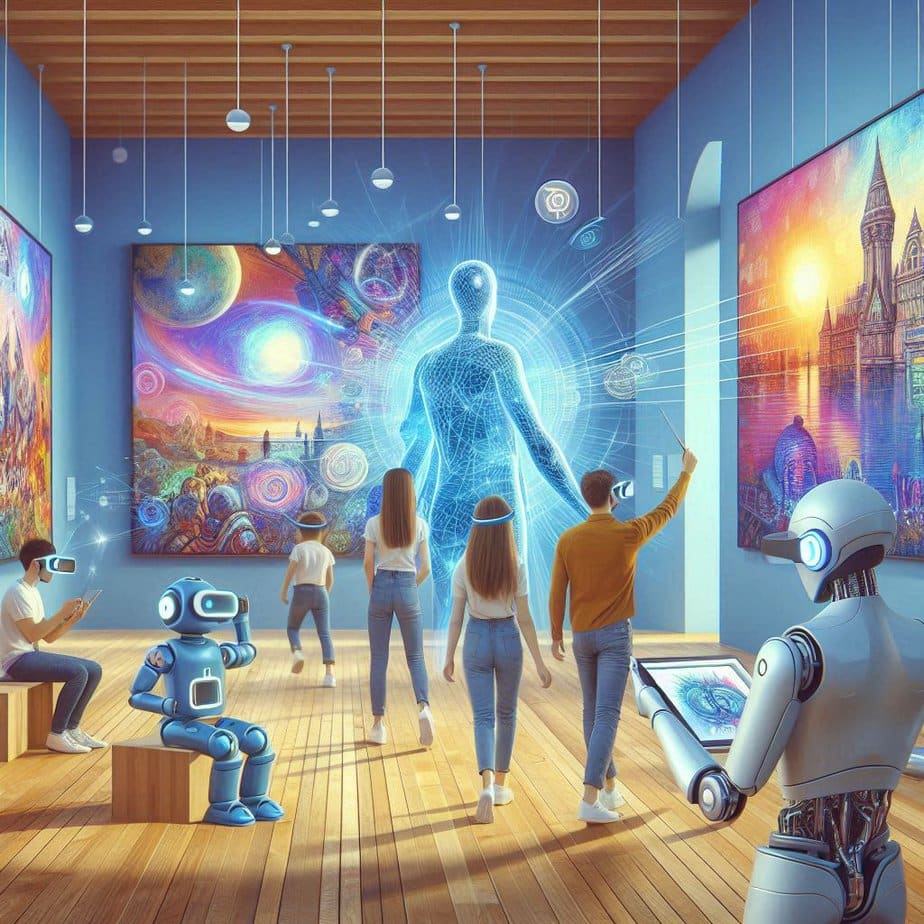As we stand on the threshold of a new decade, the art world finds itself self-assured for a remarkable transformation.
The art landscape has always reflected the ever-evolving tapestry of human expression, culture, and technology.
As we cast an our gaze forward to the art world in 2030, we embark on an exhilarating journey of anticipation and discovery.
Art, throughout history, has been a mirror to society’s values, aspirations, and concerns. It has pushed boundaries, challenged norms, and ignited profound conversations about the human experience.
In the coming decade, we can expect this tradition to continue, but with exciting new dimensions and possibilities.
Technology’s Transformative Role in Art: Envisioning 2030
In 2030, technology will continue to play a transformative role in the art world, influencing every aspect from creation to distribution. Here’s how it might evolve:
Advanced Virtual and Augmented Reality
VR and AR technologies will become even more sophisticated, offering artists unprecedented ways to create immersive experiences. Artists will utilize these technologies to transport viewers into imaginary worlds, interact with art in new ways, and blur the lines between physical and digital realities.
AI as Co-Creators
Artificial intelligence will evolve to become even more integrated into the artistic process. AI algorithms will collaborate with human artists, offering suggestions, generating ideas, and assisting in the creation of artworks across various mediums, from visual art to music and literature.
Expanded Blockchain Applications
Blockchain technology will continue to impact the art world, providing transparent and secure systems for authentication, provenance, and ownership of both physical and digital artworks. Smart contracts and decentralized platforms will streamline transactions and empower artists with greater control over their intellectual property.
Bioart and Biotechnology
As biotechnology advances, artists will explore new frontiers in bioart, creating living artworks that incorporate living organisms, genetic engineering, and synthetic biology. Bioart will raise questions about ethics, identity, and the relationship between humans and nature.
Sustainable Art Practices
Technology will play a crucial role in promoting sustainability in art production. Artists will adopt eco-friendly materials and methods, utilize renewable energy sources for their studios, and employ digital tools to minimize waste and carbon footprint.
Hyperconnectivity and Global Collaboration
Advances in communication technology will enable artists to collaborate across geographic boundaries in real-time. Virtual studios, online platforms, and collaborative tools will facilitate creative exchanges, allowing artists from diverse backgrounds to work together on projects that transcend cultural and linguistic barriers.
Data Visualization and Algorithmic Art
With the proliferation of data, artists will increasingly use data visualization techniques and algorithmic processes to create art that reflects the complexities of the modern world. From interactive installations to generative artworks, data-driven art will offer new insights into social, political, and environmental issues.
Ethical Considerations and Digital Rights
As technology continues to reshape the art landscape, ethical considerations around data privacy, digital rights management, and algorithmic bias will become more prominent. Artists, policymakers, and technologists will need to collaborate to develop frameworks that protect artists’ rights and ensure equitable access to digital resources.
In summary, technology in 2030 will enable artists to push the boundaries of creativity, foster global collaboration, and address pressing societal challenges through innovative and interdisciplinary approaches to art-making.


